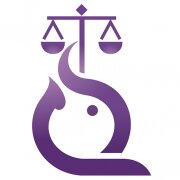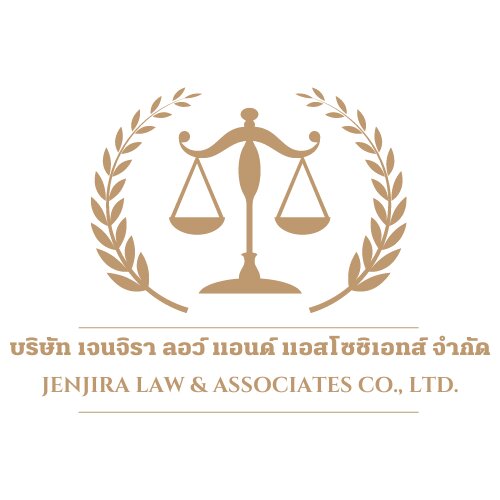Best Discrimination Lawyers in Thailand
Share your needs with us, get contacted by law firms.
Free. Takes 2 min.
Or refine your search by selecting a city:
List of the best lawyers in Thailand
Legal guides written by Smart Legal Solutions:
- Main Legal Measures to Protect Foreign Investment in Thailand
- The importance of the geographical indications for the Thai economy
About Discrimination Law in Thailand
Discrimination in Thailand encompasses various unlawful acts where individuals or groups are treated unfavorably based on attributes such as race, nationality, gender, age, disability, or other personal characteristics. The Thai Constitution and several national laws provide a framework to prevent discrimination and promote equality. Despite these legal protections, instances of discrimination, particularly in employment, education, and public services, continue to pose challenges. Efforts are ongoing to strengthen these laws and raise awareness about individual rights and equal treatment.
Why You May Need a Lawyer
Discrimination cases can be complex, often requiring professional legal expertise to navigate effectively. Situations where individuals might need a lawyer include:
- Facing discrimination or harassment in the workplace based on gender, race, or disability.
- Denial of public services or educational opportunities due to nationality or religion.
- Encountering discriminatory practices in housing or renting due to race or social status.
- Needing to file complaints or lawsuits against entities violating anti-discrimination laws.
- Seeking preventative legal advice for businesses to ensure compliance with anti-discrimination laws.
Local Laws Overview
Key aspects of local laws relevant to discrimination in Thailand include:
- The Constitution of Thailand: Guarantees equality before the law and prohibits discrimination.
- The Labor Protection Act: Protects employees from discrimination based on sex, age, and other characteristics.
- Gender Equality Act: Specifically addresses discrimination against individuals based on gender.
- Persons with Disabilities Empowerment Act: Ensures rights and equal opportunities for individuals with disabilities.
- Child Protection Act: Provides measures to prevent discrimination against children, emphasizing equal education access.
Frequently Asked Questions
What constitutes discrimination under Thai law?
Discrimination involves any unjust or prejudicial treatment that differentiates individuals based on characteristics like race, gender, age, disability, nationality, or religion.
How can I prove discrimination in the workplace?
Evidence can include discriminatory remarks, unequal pay, biased terms of employment, or witness testimonies. Document all potential evidence and consult a lawyer to assess your case.
What legal recourse is available for victims of discrimination?
Victims can file a complaint with relevant government bodies like the Labor Protection and Welfare Department or take civil action through the courts.
Are there any anti-discrimination protections for foreigners in Thailand?
While Thai law generally extends anti-discrimination protections to everyone within the country, enforcement can vary, and it is advised to seek legal advice if issues arise.
Can I file a discrimination complaint anonymously?
While anonymity may not always be possible in legal proceedings, initial consultations with a lawyer can be confidential.
What's the difference between direct and indirect discrimination?
Direct discrimination occurs when someone is treated less favorably outright, whereas indirect discrimination involves policies or practices that, although neutral on the surface, disadvantage certain groups.
Are there time limits to file a discrimination complaint?
Yes, there are specific timeframes depending on the type of discrimination and where the incident occurred, making it important to seek legal advice promptly.
What role does the National Human Rights Commission of Thailand play?
The Commission promotes and monitors human rights, including anti-discrimination, and can offer guidance and support to victims.
How effective are anti-discrimination laws in practice?
While laws exist, implementation and awareness can vary. Legal advice can help assess options and move cases forward.
What should employers do to ensure compliance with anti-discrimination laws?
Employers should review policies, provide anti-discrimination training, maintain open reporting channels, and ensure fair treatment in all practices.
Additional Resources
Several resources and organizations can assist individuals facing discrimination in Thailand:
- National Human Rights Commission of Thailand: Provides support and information on human rights violations.
- Labor Protection and Welfare Department: Handles labor-related complaints and ensures compliance with labor laws.
- Office of Women's Affairs and Family Development: Offers support related to gender-based discrimination.
- Local NGOs: Some non-governmental organizations focus on human rights and may offer legal aid or counseling.
Next Steps
If you believe you've experienced discrimination, consider the following steps:
- Gather and document all relevant information and evidence.
- Consult with a lawyer specializing in discrimination cases to evaluate your situation.
- Decide on the course of action-whether to file a legal complaint, negotiate a resolution, or pursue mediation.
- Stay informed about your rights and any procedural developments related to your case.
- Consider reaching out to supportive organizations or governmental bodies for additional support and guidance.
Lawzana helps you find the best lawyers and law firms in Thailand through a curated and pre-screened list of qualified legal professionals. Our platform offers rankings and detailed profiles of attorneys and law firms, allowing you to compare based on practice areas, including Discrimination, experience, and client feedback.
Each profile includes a description of the firm's areas of practice, client reviews, team members and partners, year of establishment, spoken languages, office locations, contact information, social media presence, and any published articles or resources. Most firms on our platform speak English and are experienced in both local and international legal matters.
Get a quote from top-rated law firms in Thailand — quickly, securely, and without unnecessary hassle.
Disclaimer:
The information provided on this page is for general informational purposes only and does not constitute legal advice. While we strive to ensure the accuracy and relevance of the content, legal information may change over time, and interpretations of the law can vary. You should always consult with a qualified legal professional for advice specific to your situation.
We disclaim all liability for actions taken or not taken based on the content of this page. If you believe any information is incorrect or outdated, please contact us, and we will review and update it where appropriate.
Browse discrimination law firms by city in Thailand
Refine your search by selecting a city.
















